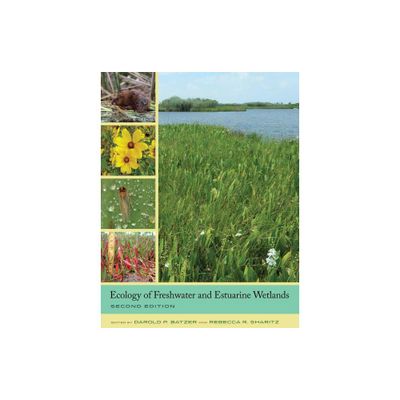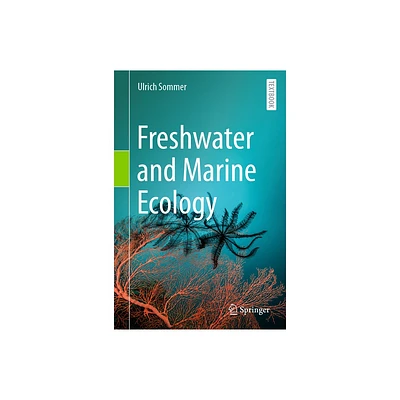Home
Basics of Marine and Estuarine Ecology
Loading Inventory...
Barnes and Noble
Basics of Marine and Estuarine Ecology
Current price: $169.99


Barnes and Noble
Basics of Marine and Estuarine Ecology
Current price: $169.99
Loading Inventory...
Size: Hardcover
*Product Information may vary - to confirm product availability, pricing, and additional information please contact Barnes and Noble
The book presents recent research on marine ecology in different parts of the world. It aims to shed light on relevant topics for budding marine ecologists.
The “blue soup” of Planet Earth, which comprises both biotic and abiotic components, is essential to keeping the wheel of civilization running. Four major ecosystem service categories have been identified within this context, namely
provisioning services
such as water, food, mangrove timber, honey, fish, wax, fuel wood, fodder and bioactive compounds from marine and estuarine flora and fauna;
regulating services
such as the regulation of climate, coastal erosion, coral bleaching and pollution;
cultural services
encompassing recreational (tourism), spiritual and other non-material benefits; and
supporting services
such as nutrient cycling and photosynthesis. These valuable services are obtained from various resources that must be conserved for the sake of humanity. This book presents data for each resource type, not just in the form of a simple description, but also through case studies that resulted from several research projects and pilot programs carried out in different parts of the world. Statistical tools were also used to critically analyze the influence of relevant hydrological parameters on the biotic community. Advanced research in marine and estuarine ecology is based on the use of sophisticated instruments, sampling precision, statistical tools, etc., which have also been highlighted in the book.
The “blue soup” of Planet Earth, which comprises both biotic and abiotic components, is essential to keeping the wheel of civilization running. Four major ecosystem service categories have been identified within this context, namely
provisioning services
such as water, food, mangrove timber, honey, fish, wax, fuel wood, fodder and bioactive compounds from marine and estuarine flora and fauna;
regulating services
such as the regulation of climate, coastal erosion, coral bleaching and pollution;
cultural services
encompassing recreational (tourism), spiritual and other non-material benefits; and
supporting services
such as nutrient cycling and photosynthesis. These valuable services are obtained from various resources that must be conserved for the sake of humanity. This book presents data for each resource type, not just in the form of a simple description, but also through case studies that resulted from several research projects and pilot programs carried out in different parts of the world. Statistical tools were also used to critically analyze the influence of relevant hydrological parameters on the biotic community. Advanced research in marine and estuarine ecology is based on the use of sophisticated instruments, sampling precision, statistical tools, etc., which have also been highlighted in the book.


















